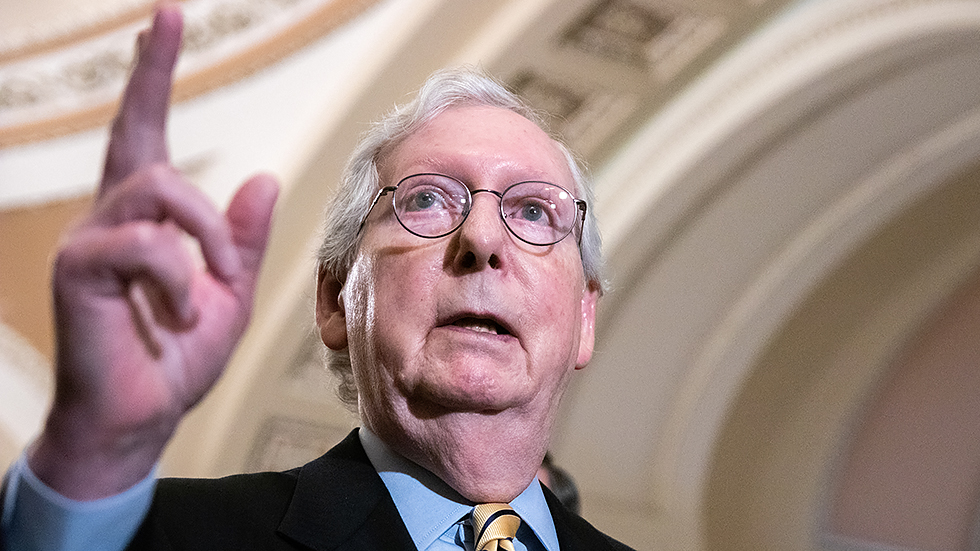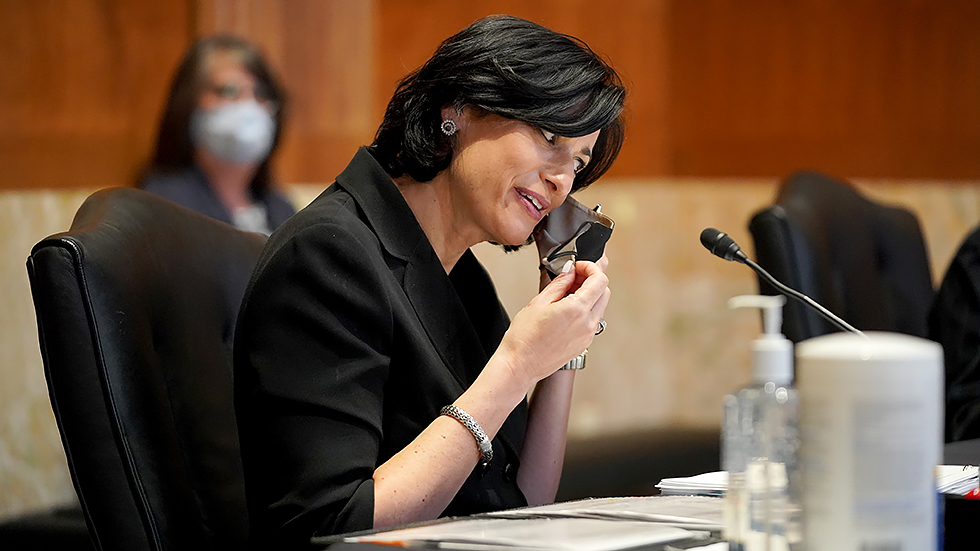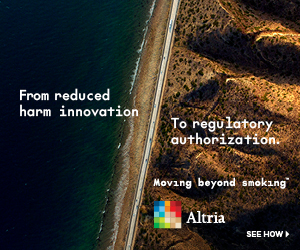Overnight Health Care — Presented by Altria — Booster shots get bipartisan rollout
Welcome to Monday’s Overnight Health Care, where we’re following the latest moves on policy and news affecting your health. Subscribe here: digital-staging.thehill.com/newsletter-signup.
Monday motivation: Almost a month later, the five zebras are still on the loose in Maryland. If the zebras can keep going, so can we.
Just days after the CDC cleared the way, both President Biden and Senate Minority Leader Mitch McConnell received booster shots of Pfizer’s COVID-19 vaccine.
For The Hill, we’re Peter Sullivan (psullivan@digital-staging.thehill.com), Nathaniel Weixel (nweixel@digital-staging.thehill.com) and Justine Coleman (jcoleman@digital-staging.thehill.com). Write to us with tips and feedback, and follow us on Twitter: @PeterSullivan4, @NateWeixel and @JustineColeman8.
Let’s get started.
Biden, McConnell get third shots as boosters roll out
President Biden received his booster shot of the COVID-19 vaccine on Monday while touting the third dose as “safe and effective.”
“I know it doesn’t look like it, but I am over 65, way over, and that’s why I’m getting my booster shot today,” Biden said.
Focus still on unvaccinated: Even as he encouraged people to get booster shots, if they are eligible, Biden again put the focus on people who have not received any shots at all.
“Boosters are important but the most important thing we need to do is get more people vaccinated,” Biden said.
About 23 percent of adults have still not received any shot, according to the CDC.
“That distinct minority is causing an awful lot of damage for the rest of the country,” Biden said, pointing to vaccine requirements as part of the way forward.
A MESSAGE FROM ALTRIA

MCCONNELL CALLS IT ‘EASY DECISION’

Senate Minority Leader Mitch McConnell (R-Ky.) said he received the COVID-19 booster shot on Monday, calling his choice to get the third dose “an easy decision”
The 79-year-old senator announced that he got the booster dose while on the Senate floor, hours after President Biden received his third shot.
“I’m glad to share that a few minutes ago, I received a booster vaccination for COVID-19,” McConnell said. “All throughout the pandemic, I have followed the best advice from experts and especially from my own health care providers. It was an easy decision to receive a booster.”
In his speech, the Senate minority leader labeled himself a “lifelong champion of vaccinations,” having survived polio during his childhood and more recently promoting COVID-19 vaccines — even as other Republicans, including some GOP lawmakers, have refused or been more hesitant to get their initial shots.
“Mountains of evidence tell us these shots are safe, effective and dramatically shrink the odds of severe disease or death from COVID,” he said.
Eligibility: Biden and McConnell were both considered eligible for a booster because they are older than 65, but it may not be so cut and dry for members of the general public who are younger.
Centers for Disease Control and Prevention Director Rochelle Walensky said individuals need to make their own assessment based on personal risk. Public health officials essentially made boosters available to anyone who identifies as a front-line worker (if they received Pfizer the first time), but the messaging has been focused primarily on the elderly and health workers.
More hospitals forced to ration care amid delta surge

While the focus over the past few days has been the rollout of boosters, they won’t help solve the hospitalizations of the unvaccinated.
Coronavirus patients are straining hospitals across the U.S., particularly in Western states, where administrators are being forced to ration care as facilities are pushed to their breaking points by the delta variant.
Alaska this past week joined Idaho in adopting statewide crisis standards of care that provide guidance to health care providers making difficult decisions on how to allocate limited resources. Several hospitals in Montana have either activated crisis standards of care or are considering it as the state is pummeled by COVID-19.
Under the guidelines, providers can prioritize treating patients based on their chances of recovery, impacting anyone seeking emergency care, not just those with COVID-19.
Triage mode: Typically, crisis standards of care involve a scoring system to determine the patient’s survivability, sometimes including their estimated “life years” and how well their organs are working. Such guidelines do not call for factoring in vaccination status, much like emergency rooms don’t prioritize certain car crash victims based on whether a driver was drinking.
Still, the vast majority of COVID-19 patients overwhelming hospitals are unvaccinated, months after the vaccine became widely available to U.S. adults.
As of last Friday, the ICUs in Alabama, Georgia, Idaho, Kentucky and Texas all exceeded 90 percent capacity. The ICUs in Alaska and Montana, meanwhile, were 84 percent and 77 percent full, respectively, according to federal data.
THE OTHER SIDE OF THE VACCINE MANDATE COIN

Another possible challenge for hospitals: staff who won’t get vaccinated, and quit over mandates.
CDC Director Rochelle Walensky on Monday said she backed vaccine mandates for health care workers but admitted that resulting staff shortages could present a challenge.
What she said: “We have seen that these vaccine mandates get more people vaccinated,” Walensky said in an appearance on ABC’s “Good Morning America.”
“It absolutely creates a challenge,” Walensky added. “What I would say is [we need] to do some work, to educate these health care workers, to meet them where they are, to understand where their hesitancy is so we can get them vaccinated and get them back to work.”
Context: The CDC director’s praise for mandates came the day of New York’s deadline for health care workers to get vaccinated, as the governor’s office said about 16 percent of the state’s medical workers continue to resist the shot.
New York Gov. Kathy Hochul (D) is set to sign an executive order allowing her to activate the National Guard and out-of-state health care workers to fill the roles of the unvaccinated workers who missed the deadline.
A MESSAGE FROM ALTRIA

Confusion reigns over vaccine booster rolloutBiden administration officials got what they wanted: booster shots of Pfizer’s vaccine are now available to broad swathes of the U.S. population.
Experts said CDC Director Rochelle Walensky’s decision to expand on the recommendations from the agency’s expert panel will make boosters available for health care workers, teachers, grocery store workers and other frontline workers. President Biden on Friday said there could be 60 million Americans who fit the bill.
But some experts say the loose definitions of these categories make boosters available to “almost everyone,” and states and providers are bracing for confusion as the Biden administration begins rolling out booster doses of Pfizer’s COVID-19 vaccine.
Chaotic and at times disparate messaging from administration health officials over the past month has culminated in a complicated set of recommendations about who should be getting booster shots, and why.
Keep it simple: “There’s going to be confusion. If we are going to create guidelines that are essentially making the vaccine available to almost everyone, the simplest solution is, make it available to everyone,” said Celine Gounder, an infectious disease specialist and epidemiologist at NYU and Bellevue Hospital.
“The best public health programs are the ones that are simple and easy to understand and clear, and the more complexity you build into it, the more difficult it is to roll out,” she added.
In deciding to give boosters based on occupation, Walensky aligned CDC policy with the FDA’s authorization. But neither agency specifically defined who qualifies as a high risk worker. It’s up to the individual to make the decision, and there’s no specific qualifications. It’s self-attestation.
WHAT WE’RE READING
- Firefighters on front lines, no strangers to risk, push back against Covid vaccine mandates (Kaiser Health News)
- ‘Every day is frightening’: Working for the top U.S. employer amid Covid (The New York Times)
- Hospitals fear staffing shortages as vaccine deadlines loom (The Associated Press)
STATE BY STATE
- ‘A casualty of the pandemic’: Utah health leaders say COVID-19 politics have damaged public’s trust in them (The Salt Lake Tribune)
- These health care workers would rather get fired than get vaccinated (The New York Times)
- Native Hawaiian deaths from COVID-19 spike over past week (The Associated Press)
OP-ED IN THE HILL
The ties that bind the HIV fight to contraception access
That’s it for today, thanks for reading. Check out The Hill’s healthcare page for the latest news and coverage. See you Tuesday.
Copyright 2024 Nexstar Media Inc. All rights reserved. This material may not be published, broadcast, rewritten, or redistributed..

















